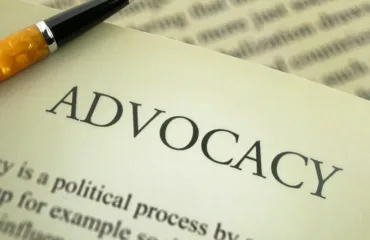
Commonly referred to as domestic abuse or intimate partner violence, domestic violence can happen to anyone. It is common for both perpetrators and victims of abusive relationships to come from all walks of life, all economic backgrounds, and all ethnicities as well as any race, age, gender, or sexual orientation.
There is often escalation from verbal abuse and threats to physical violence in cases of domestic abuse. In addition to the obvious danger of physical injury, domestic abuse can have devastating emotional and psychological consequences. It is possible to experience self-esteem loss, anxiety and depression, as well as a sense of helplessness and isolation if you are in an emotionally abusive relationship. This kind of pain should never be endured-and you must first acknowledge that your relationship is abusive in order to free yourself.
There are a number of signs of an abusive relationship, but fear is the most telling. There is a good chance your relationship is unhealthy and abusive if you feel like you need to walk on eggshells around them, constantly watching what you say and do to avoid blow-ups.
You may also have feelings of self-loathing, helplessness, and desperation if your partner belittles or tries to control you.
Abusive behaviour is a choice
People often mistakenly believe that domestic violence and abuse happen because abusers lose control of their behaviours. Often, abusive behaviour and violence are intentional attempts to gain control. Various tactics can be used by perpetrators for manipulating and exerting power over you, such as:
Dominance – A person who abuses needs to feel like he or she is in control of the relationship. There are times when they may make decisions for you and your family, tell you what to do, and expect you to obey without question. As a victim of abuse, you may be treated as a servant, a child, or perhaps even as a possession.
Isolation – A partner who abuses you will isolate you from the outside world in order to increase your dependence on them. There may be times when they prevent you from seeing your family and friends, or even from going to work or school. Any action you take, any place you visit, or any person you meet may require permission.
Humiliation – An abuser will do everything they can to lower your self-esteem or to make you feel that you are not as valuable as other people in some way. This way, you will feel less capable of taking care of yourself and less able to stand up for yourself. Insults, name-calling, shaming, and public put-downs are used to convince you that you’re not worth anything and that you have no value.
Threats – Abusers often use threats to keep their partners from leaving or to intimidate them into dropping accusations. Your abuser may threaten to hurt or kill you, your child, other family members, or even your pet.
Recognising the warning signs of abuse
While it’s impossible to know for sure what’s going on behind closed doors, there are some tell-tale signs of emotional abuse and domestic violence. If a friend, family member, or co-worker shows signs of abuse, take it seriously.
- Seem afraid or anxious to please their partner
- Talk about their partner’s temper, jealousy, or possessiveness
- Go along with everything their partner says and does
- Receive frequent, harassing phone calls from their partner
- Check in often with their partner to report where they are and what they’re doing
- Be restricted from seeing family and friends
- Rarely go out in public without their partner
- Show major personality changes
Speak up if you suspect domestic violence or abuse
Speak up if you feel someone you know is being abused! If you’re hesitant, telling yourself that it’s none of your business, that you might be incorrect, or that the person doesn’t want to talk about it, remember that voicing your worry will show the person that you care and may even save their life.
Remember that abusers excel at controlling and manipulating their victims. People who have been emotionally or physically abused are frequently unhappy, exhausted, afraid, embarrassed, and perplexed. They require assistance in escaping the situation, but their partner has frequently separated them from their family and friends.
You may assist someone escapes an abusive situation and begin healing by recognising the warning signs and offering support.
Who can help?
There are a wide array of domestic abuse support organisations that provide you with the support you need. Below are some organisations that can help…
- Herts Domestic Abuse Helpline
- Refuge
- Safer Places
- Victim Support
- Solace
How can we help?
We want to ensure that you can get the help and support that you need.
Our domestic abuse support offers options that can avoid the cost or disruption of a court case – and we will help to settle things without confrontation wherever we can.
Whichever specific issue you’re currently facing, we’ll be more than glad to give you a pre-appointment, free consultation on it.
Get in touch with us:
Email: [email protected]
Telephone: 0208 080 0549



